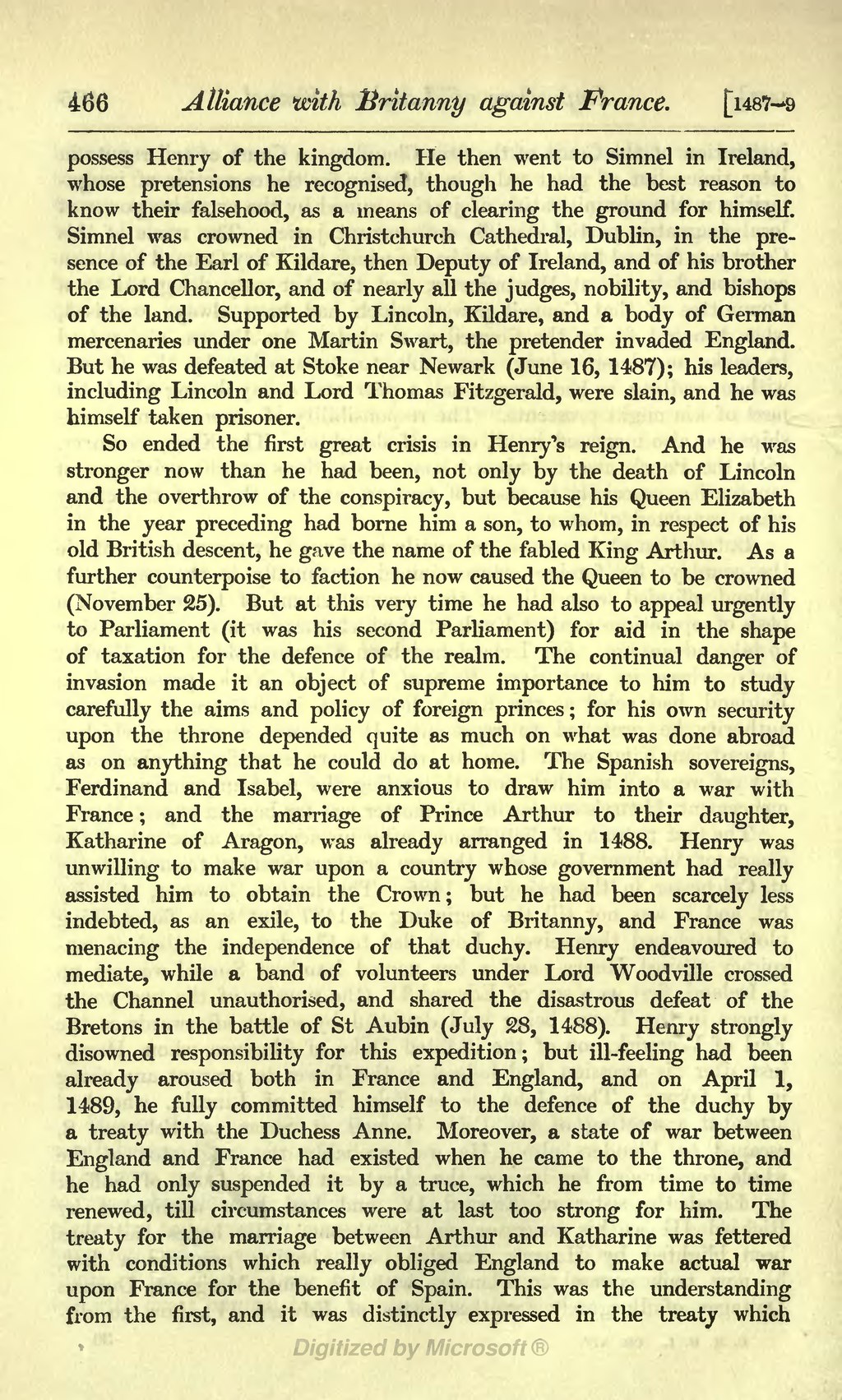possess Henry of the kingdom. He then went to Simnel in Ireland, whose pretensions he recognised, though he had the best reason to know their falsehood, as a means of clearing the ground for himself. Simnel was crowned in Christchurch Cathedral, Dublin, in the presence of the Earl of Kildare, then Deputy of Ireland, and of his brother the Lord Chancellor, and of nearly all the judges, nobility, and bishops of the land. Supported by Lincoln, Kildare, and a body of German mercenaries under one Martin Swart, the pretender invaded England. But he was defeated at Stoke-upon-Trent (June 16, 1487); his leaders, including Lincoln and Lord Thomas Fitzgerald, were slain, and he was himself taken prisoner.
So ended the first great crisis in Henry's reign. And he was stronger now than he had been, not only by the death of Lincoln and the overthrow of the conspiracy, but because his Queen Elizabeth in the year preceding had borne him a son, to whom, in respect of his old British descent, he gave the name of the fabled King Arthur. As a further counterpoise to faction he now caused the Queen to be crowned (November 25). But at this very time he had also to appeal urgently to Parliament (it was his second Parliament) for aid in the shape of taxation for the defence of the realm. The continual danger of invasion made it an object of supreme importance to him to study carefully the aims and policy of foreign princes; for his own security upon the throne depended quite as much on what was done abroad as on anything that he could do at home. The Spanish sovereigns, Ferdinand and Isabel, were anxious to draw him into a war with France; and the marriage of Prince Arthur to their daughter, Katharine of Aragon, was already arranged in 1488. Henry was unwilling to make war upon a country whose government had really assisted him to obtain the Crown; but he had been scarcely less indebted, as an exile, to the Duke of Britanny, and France was menacing the independence of that duchy. Henry endeavoured to mediate, while a band of volunteers under Lord Woodville crossed the Channel unauthorised, and shared the disastrous defeat of the Bretons in the battle of St Aubin (July 28, 1488). Henry strongly disowned responsibility for this expedition; but ill-feeling had been already aroused both in France and England, and on April 1, 1489, he fully committed himself to the defence of the duchy by a treaty with the Duchess Anne. Moreover, a state of war between England and France had existed when he came to the throne, and he had only suspended it by a truce, which he from time to time renewed, till circumstances were at last too strong for him. The treaty for the marriage between Arthur and Katharine was fettered with conditions which really obliged England to make actual war upon France for the benefit of Spain. This was the understanding from the first, and it was distinctly expressed in the treaty which
